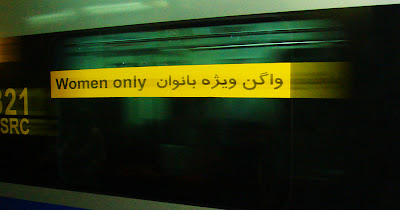Nasrin is 20 She does not remember her father, a heroin addict and drug dealer who abandoned her and her mother when she was only three years old. The step-father who replaced him continuously abused her. Nasrin left home at the age of 14 and was moved from one Behzisti (local authority) home to another until she found a safe haven at Omid-e-Mehr. Due to years of abuse, neglect and emotional trauma She was extremely angry and destructive when she first came to Omid-e-Mehr. But having received the proper psychological and emotional care, while given a chance to educate and broaden her mind she has been able to dramatically turn her life around. She has finished high school, is attending university preparatory classes, and is determined to make a career for herself as a lawyer. Nasrin has been reunited with her brother and grandmother, and is now also a regular visitor at her mother’s house.
Monir is 17 she has two brothers; a younger and older one. Monir’s mother is a drug addict. When her parents divorced, Monir was kicked out of the parental home. She then lived in Behzisti (local authority) accommodation until she was 16, when she was forced to leave because of her age. Stranded at such a young age with no money and no where to go, she had no means of supporting herself or renting a room. Left with no other choice she had to turn to her father and brothers who themselves were homeless and in no better predicament. Her father a poor shoe maker, could barely provide enough for his family to eat. Unable to rent a place, they all had to sleep in the shop where her father worked. With Omid-e-Mehr's help, the family has now found an affordable flat. Monir is continuing her training at Omid-e-Mehr, while mentoring other young children in creative writing in downtown Tehran.
"I didn't know what the word Hope meant before"
Mehri is 17 She has never known her parents and has been placed in Behzisti (local authority) care since infancy. Mehri was an extremely fragile young woman when she first arrived at Omid-e-Mehr in 2004. She was depressed, shy, introverted and using drugs. For a long time she attended lessons only irregularly, and spent much of her time sleeping. An orphan all her life, she felt worthless as if she meant nothing to anyone. Today, Mehri is no longer taking drugs and is rapidly turning into a self-confident and vibrant young woman. She has completed her training at Omid-e-Mehr and is embarking upon a career as a beautician. She retains the passion for photography and painting that she developed while at Omid-e-Mehr.
Despite their past difficulties, and the obstacles still facing them, these young women have dreams. They yearn to participate in life, and to make meaningful contributions to the world around them. Each contribution, no matter how small directly improves the lives of these underprivileged young women in some vital way and Omid-e-Mehr value each and every donation. Donate Now




